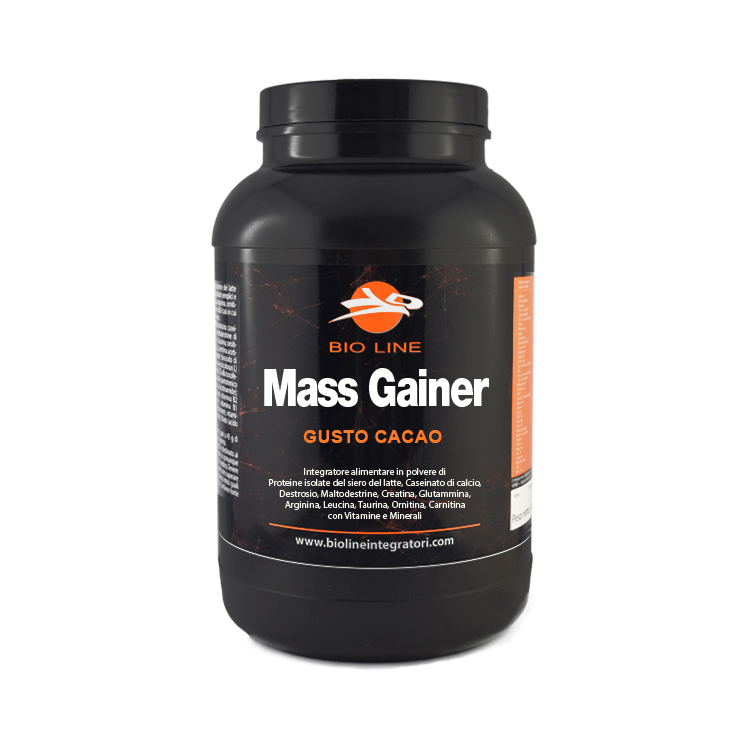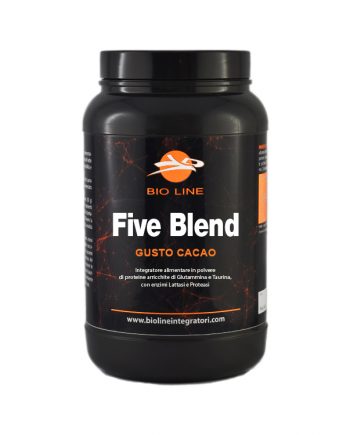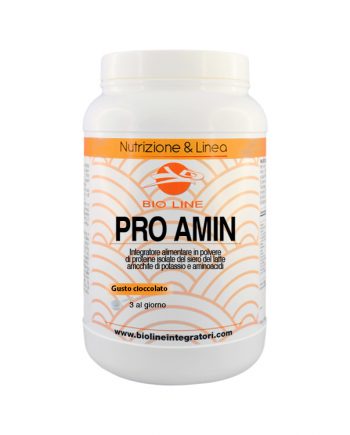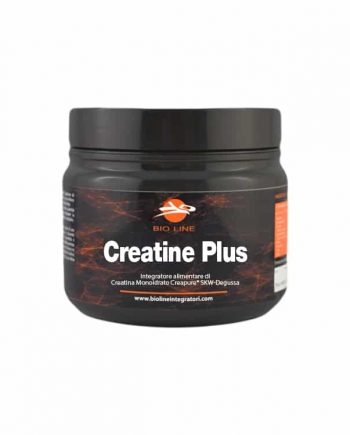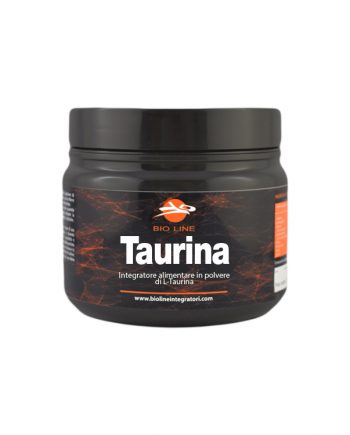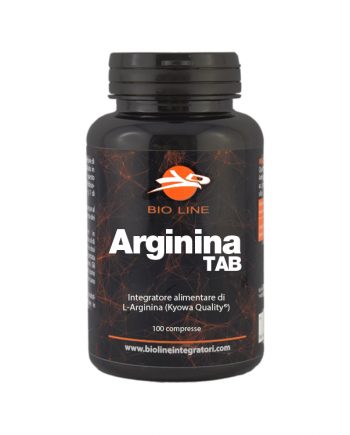Mass Gainer with sweeteners - Food supplement for after training
The consumption of protein supplements can be useful for:
- benefit from a quality protein source;
- increase the amount of protein in the diet.
Protein contributes to the maintenance and growth of muscle mass.
Properties of components
– Whey Protein Isolate: they are proteins with a high biological value, sugar-free (0.5%) and fat-free (0.3%), obtained through cross-flow filtration processes of whey, thus obtaining a filtrate containing 90-92% of proteins.
To improve the solubility, the product is treated with the soy lecithin emulsifier.
– Calcium caseinate: is a high biological value protein, low in fat (1.5%) and sugar free (0.1%), obtained through spry-dried processes and treated with mono and diglycerides of food grade fatty acids. The product thus acquires a remarkable ability to disperse in water with which it forms a stable colloidal complex.
The protein content is 92%, the amount of calcium is high (1380 mg per 100 g of product) and low sodium concentration (5 mg per 100 g of product).
– Dextrose and Maltodextrin: useful as an energy source of sugars and carbohydrates.
– Creatine: useful for increasing physical performance (for daily consumption of 3 g of Creatine).
– L-Glutamine: semi-essential amino acid responsible for transporting toxic nitrogen residues, in the form of ammonia, for subsequent elimination.
– L-Arginine: non-essential amino acid that intervenes in the urea cycle.
– L-Leucine: branched essential amino acid.
– L-Taurine: non-essential amino acid, concentrated at the level of skeletal and cardiac muscle.
– Ornithine Alpha-ketoglutarate: amino acid derivative involved in the Krebs cycle.
– L-Carnitine: amino acid involved in the metabolism of fatty acids.
– C vitamin: contributes to the function of the immune system during and after intense physical exertion, to the formation of collagen for the function of blood vessels and to the protection of cells from oxidative stress.
– Iodine: contributes to the production and function of thyroid hormones. Cognitive function.
– Vitamin E: contributes to the protection of cells from oxidative stress.
– Pantothenic acid: contributes to energy metabolism, synthesis and metabolism of steroid hormones, vitamin D and some neurotransmitters.
– Niacin (Nicotinamide and Nicotinic Acid): contributes to the reduction of tiredness and fatigue and to the maintenance of normal skin.
– Iron: contributes to the formation of hemoglobin and to the activity of the immune system
– Zinc: contributes to the metabolism of fatty acids, Vitamin A and to normal acid-base and carbohydrate metabolism.
– Vitamin B2: contributes to normal energy metabolism, to the reduction of tiredness and fatigue.
– Vitamin B6: contributes to normal energy metabolism, to the reduction of tiredness and fatigue, to the functioning of the nervous system and the immune system.
– Vitamin B1: contributes to the functioning of the nervous system and heart function.
– Manganese: contributes to the formation of connective tissues and to the protection of cells from oxidative stress.
– Beta-carotene (Vitamin A): contributes to iron metabolism, and to the maintenance of vision.
– Copper: contributes to the protection of cells from oxidative stress, to the functioning of the immune system and the nervous system.
– Folate: contributes to the synthesis of amino acids, the production of red blood cells, the metabolism of homocysteine.
– Biotin: contributes to energy metabolism, to the functioning of the nervous system and to the metabolism of macronutrients.
– Molybdenum: contributes to the normal metabolism of sulfur amino acids.
– Vitamin K: contributes to blood clotting and the maintenance of healthy bones.
– Selenium: contributes to the function of the immune system and thyroid.
– Vitamin D: contributes to the absorption of calcium and phosphorus and to the maintenance of bones and teeth.
– Vitamin B12: contributes to the formation of red blood cells, to the reduction of tiredness and fatigue.
– Magnesium: contributes to muscle function, the reduction of tiredness and fatigue.
– Potassium: contributes to the functioning of the nervous and muscular systems and to the control of blood pressure.

